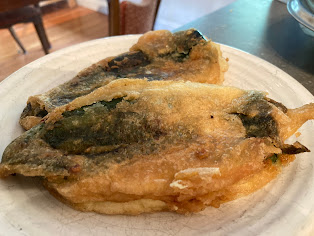Sabinal is a small isolated Mennonite colony in northern Mexico connected to Nuevo Casas Grandes by an abandoned railroad bed-turned-shale covered road which lurches and bumps through endless miles of scrub bushes; creosote and mesquite, prickly pear and yucca lost in the barren beautiful desert of sky and mountains. Sabinal Mennonites resist modernization and its easing amenities including electricity and vehicles as they persist in the harshness of desert farming. Facing astronomical odds, a few prosper, most tenaciously hang on, and others abandon another failed cotton, onion or chili crop for a house trailer and a steady, albeit cash-under-the-table job in Texas.
I spent the cold, shivering month of February 2009 on Sabinal conducting ethnographic research and while there was generously hosted by the Klassen, Hiebert, Braun, Harder and Wall families. I joined them around their tables, I awkwardly climbed in and out of their buggies, I sat stiffly upright on a wooden church bench listening to the singing of a hundred Old Colony Mennonites worrying that my skirt was too short. I laughed with three-year-old Henry as I pushed him around and around his grandmother’s yard on a scooter. I accompanied Anna Braun to the pasture to bring the dairy herd home in the evening as she explained the eccentricity of a cow who insisted on sucking her own teets. I listened as Maria Harder sang Elvis Presley and Wilf Carter, songs she remembered from her youth in British Columbia. I heard stories of neighborly tensions, dogs poisoned, cows trampling gardens. I was invigorated and exhausted and marveled at my own tenuous and inadequate understanding of it all.
Near the end of my stay on Sabinal, I joined Susanna, Sarah and Margaret Klassen on a late night ride across the colony to village #7 to deliver a band saw blade that needed sharpening for the upcoming Klassen pig butchering. In spite of the glistening infinity of a galaxy of stars overhead and the orange haze of Ciudad Juárez’ million lights glowing in the distant northeastern sky, the night was blindingly black. The busyness of daily life had quieted on Sabinal, houses were darkened and most families were asleep. Reins in hand, Sarah deftly guided the horse through the darkness as she quizzed me about a train that could take me clear across a city all the while underground. I, on the other hand, was distracted, overwhelmed by the beauty of the black stillness, relieved to be miles away from the noise and lights of Toronto. In the lulling and languishing of our conversation, I knew this sky to be big enough to hold the intimacies of connection and the mutual misunderstandings of our different worlds, an expanse vast enough to embrace the happiness and courage, the discontentment, the sorrows, the exclusions, the grasping, the satisfactions and the worry, the predictability and the bewildering that I had witnessed as life on Sabinal.
 |
| Constitucion Oriente |
A breakfast of papaya and hot chocolate does not register as one of Mexico’s culinary wonders. The dry brown winterness of Nuevo Casas Grandes is a long, long way from Mexico’s culinary capital, Oaxaca, where chefs of Pilar Cabrera fame pestle a thousand richnesses—mulatos, pasillas, anchos, walnuts, sesame seeds, pine nuts, pepitas, all spice, cinnamon, plantain, raisins, pears, prunes, tomatillos, garlic, chocolate, panela—into the thick sticky moles that make that state famous. Nothing Nuevo Casas Grandes has on offer even begins to approach the seven-hued splendors of Oaxaca’s moles. I enjoyed the bacon-wrapped, cheese-stuffed jalapeños at a seafood joint downtown, the creamed chili burritos from a stand crowded into the corner of a supermarket and tortilla soup in the restaurant of Villa Colonial hotel but Nuevo Casas Grandes is no culinary mecca. Its fare is what you would expect in a dusty northern town, simple flavors that make only modest demands on the palate. Yet there is a time and place for everything, even the unpretentious, ordinary, sometimes mediocre food of Nuevo Casas Grandes. On those cold February mornings when I stepped off the bus I had a sky full of complexities to contemplate so what in heaven’s name would I have done with a dish of mole negro oaxaqueño or mancha manteles de cerdo? No, I needed a palated quietude for breakfast. I was content with papaya and hot chocolate, a plate of effortless simplicity set down in front of me, a mug of warming smoothness to grasp in my hands.
mancha manteles de cerdo - pork table cloth stainer
















































No comments:
Post a Comment